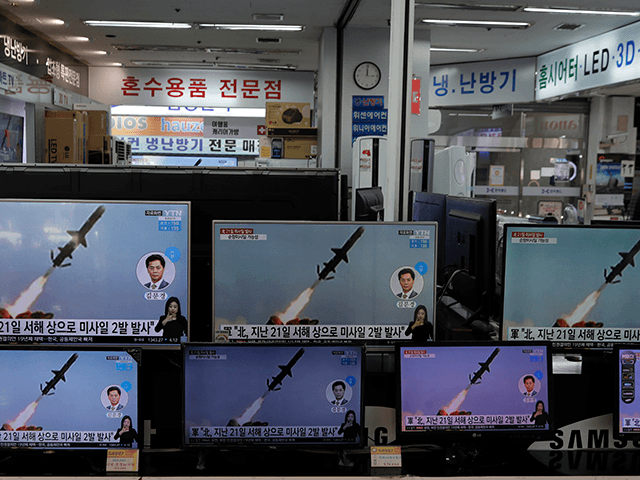North Korea launched two cruise missiles from its western coast Sunday, marking Pyongyang’s first missile test since April 2020.
The launch was seen by various analysts as a test of the Biden administration, an angry response to U.S. military drills, or the beginning of a new North Korean military exercise.
South Korean and U.S. officials said they were immediately aware of the launches but did not make them public at first, downplaying their importance. The missiles fired by North Korea did not appear to be the long-range weapons banned by U.N. Security Council resolutions.
South Korea’s Yonhap News identified the weapons on Wednesday as Kumsong-3 coastal defense missiles and said they flew about 150 miles before splashing into the East Sea – more in the direction of China than Japan, which usually has a front-row seat to the more provocative North Korean missile tests.
The North Korean military is nominally engaged in lengthy “winter drills” that last from December to March. The missile launch occurred three days after the U.S. and South Korea completed their own nine-day spring exercise, which North Korea strongly objected to, even though it was scaled down considerably to include a “minimum level” of troops and no outdoor maneuvers at all.
After ignoring the Biden administration for months, North Korea delivered a warning last week via dictator Kim Jong-un’s sister Kim Yo-jong, who warned the new White House not to “give off gunpowder smell in our land” with military drills.
“If it wants to sleep in peace for the coming four years, it had better refrain from causing a stink at its first step,” she said.
The Wall Street Journal (WSJ) on Wednesday quoted Biden administration officials working hard to minimize the importance of North Korea’s latest missile launches:
President Biden said he didn’t consider the launch a provocation.
“According to the Defense Department, it’s business as usual,” he said at the White House. “There is no new wrinkle in what they did.”
A senior U.S. official said Pyongyang “has a clear menu of provocations when it wants to send a message,” and “what took place last weekend is falling on the low end of that spectrum.”
“Almost every kind of activity – missile, nuclear activity – is covered by U.N. Security Council resolutions. And so, because this does not, it probably gives you an indication of where it falls on the spectrum of concern,” an unnamed senior official said in a conference call Tuesday.
“The Biden administration is nearing the end of a review of its policy with North Korea, the senior administration officials said. Next week, national-security adviser Jake Sullivan is expected to meet in person in Washington with counterparts from South Korea and Japan to discuss the U.S. posture with regard to North Korea,” the WSJ noted.
Biden officials told the Associated Press they believe Pyongyang is reeling from the coronavirus pandemic and its associated economic stresses. The pandemic is widely believed to have ravaged North Korea, even though the Communist government officially insists it never had a single case of Chinese coronavirus These officials also judged North Korea to be significantly weakened by years of U.S. sanctions and a string of natural disasters.

COMMENTS
Please let us know if you're having issues with commenting.